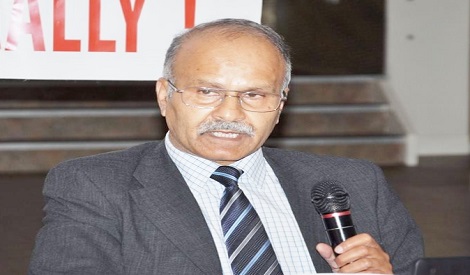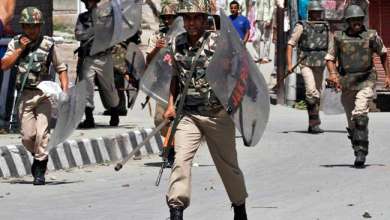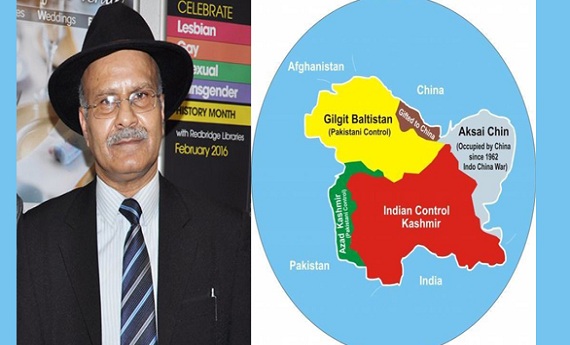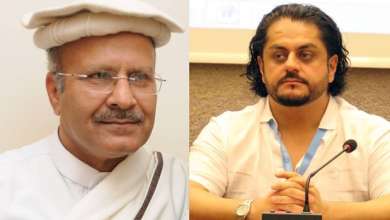Education: the hidden causality of Kashmir conflict

Written By: Altaf Hussain Wani
The right to education is a basic human right deemed indispensable for the exercise of other human rights. It has been duly recognised as an inalienable human right in a number of international conventions, including the Universal Declaration for Human Rights (UDHR), International Covenant on Economic, Social and Cultural Rights (ICESCR) and other world treaties.
Sadly, the children in the Indian held territory of Jammu and Kashmir are unable to materialize this fundamental human right as education remains to be one of the hidden casualties of the long-drawn conflict. On one hand the unending conflict has had devastating impacts on their (children’s) education while on the other the Indian government’s hostile policies towards Kashmir have casted a dark shadow on the future of the Kashmir’s young generation.
Persisting chaos, violence and unrest in the state has led to constant school closures, whereas, children continued to be the victims of state-sponsored-violence in the held territory. Besides becoming victims of extra-judicial executions, children also faced illegal and unjust detentions, ill-treatment including torture, humiliation and harassment at the hands of Indian occupation forces. After 2019, the region, in particular the Kashmir valley, witnessed an upward trend in the incidents of targeted violence against youth.
Frequent internet shutdowns, curfews and crackdowns and undue restrictions placed in pretext of maintaining law and order and in the name of so-called “national security” have rendered the education system completely paralyzed in Kashmir region. Post August 5 2019, all schools, colleges and universities were closed down in the occupied territory while Kashmiri students enrolled in different colleges, universities in India remained prone to all kinds of harassment from Indian forces, right-wing student groups and mob-lynches aided and abetted by members of the BJP.
The hate crimes against Muslims and rising tide of Islamophobia in India led to a series of violent attacks against Kashmiris; hundreds of incidents of attacks on Kashmiri students were reported from different parts of India. Some Kashmiri students were even booked for sedition for posting on social media.
Posters glorifying mob lynching’s were put up at different places in Delhi calling for Kashmiris to be driven out of the country and sent to Pakistan. Even the Meghaliya chief minister (a state in north eastern India) called for a social boycott of Kashmiris and many Kashmiri students were suspended from colleges.
Unfortunately, all this happened under the very nose of the Modi government but no action whatsoever was taken against attackers, not a single word was uttered in favour of the Kashmiri students who were forced to abandon their degrees half-way, whose lives and career was put at stake. Owing to threats to life, scores of Kashmiri students returned to their homes, which gravely affected their studies and career.
Persecution of Kashmiris in the Indian mainland ultimately forced Kashmiri parents to send their children abroad to pursue higher education. This is perhaps the reason that a sizable number of Kashmiris have moved to Bangladesh, China, Pakistan and even in Sri Lanka during the recent years in pursuit of higher studies.
However, given the proximity and its congenial atmosphere Pakistan remained the only nearest, safe and affordable study-abroad destination for them (Kashmiris). Since the country (Pakistan) opened up its institutions for Kashmiris the number of students has doubled despite the fact that the government of India (GoI) created many hurdles in the name of so-called “national security” and refused grant NOCs, passports and other relevant documents to Kashmiri students who had sought admissions in Pakistan.
And now the apartheid regime that has a history of persecuting Kashmiris has come up with another advisory that exclusively singles out and discriminates those students who are currently enrolled in different Pakistani institutions.
Under this exclusionary scheme, the Kashmiri students have been warned to desist from travelling to Pakistan or seeking admissions in MBBS and MDS in any medical colleges of the country.
The fresh advisory, issued by the Indian higher education authorities, speaks volumes about how the GoI is creating hurdles and putting up barriers in the way of education of Kashmir children and how their right to higher education is being violated and trampled down under the façade of so-called nationalism.
The notification bearing racial imprints has virtually put the future of hundreds of aspiring doctors and medical students at stake as it effectively bars graduates from employment and further studies not only in India but also in their home-state (Kashmir).
The degree ban, which goes in sync with BJP’s communal agenda to further marginalize Kashmiris, is an atrocious attempt aimed at destroying the students’ life and career.
By the way, it is not the first time that the Higher Education authorities of India issued such warnings; Earlier, a similar kind of advisory was issued in which students from occupied Kashmir were asked to refrain from taking admission in educational institutions of China and Azad Jammu and Kashmir.
The Indian UGC’s fresh advisory is in fact a part of GoI’s systematic settler colonialism campaign to keep Kashmiris uneducated and backward. It is akin to criminalizing and colonizing education to instil a sense of disempowerment among the Kashmiris, keep them away from key postings in the government and reduce them to second class citizens.
Barring students from travelling to other countries for education purposes constitute a severe violation of the ICESC and other relevant treaties, which clearly state that the higher education ‘shall be made equally accessible to all, on the basis of capacity, by every appropriate means. What it means is that students are absolutely free to choose the school, college or university they deem fit for their learning. As per the covenants states/governments have no authority whatsoever to dictate parents or students in this regard. They (governments) are supposed to facilitate the process and make sure that all children can access the quality education, without discrimination.
As per law, states have an immediate obligation to ensure the right to non-discrimination and equality in the access to and enjoyment of the right to higher education.
Unfortunately, the Kashmiri children have been the worst victims of discrimination at the hands of India’s racial regime that has been hectically engaged in creating hurdles in the way of Kashmiri students and depriving them of their right to higher education of their choice. Such abhorrent practices by the Indian government continue to affect the right to higher education besides raising inequalities and exclusion in the state.
Right to Education, as said, is duly recognized in International Law and therefore the Indian government is obligated to grant Kashmiri children the same right recognized across a plethora of international treaties and conventions.
Article 26 of the Universal Declaration of Human Rights states that “Everyone has the Right to Education” and further recognizes equal accessibility of education based on merit. The right to education is legally guaranteed for all without any discrimination. States have the obligation to protect, respect, and fulfil the right to education but it is quite unfortunate that the Indian government has been hampering the provision of access to education to Kashmiri children.
Author is the Chairman of Islamabad based think tank, Kashmir Institute of International Relations (KIIR). He can be reached by email, saleeemwani@hotmail.com





